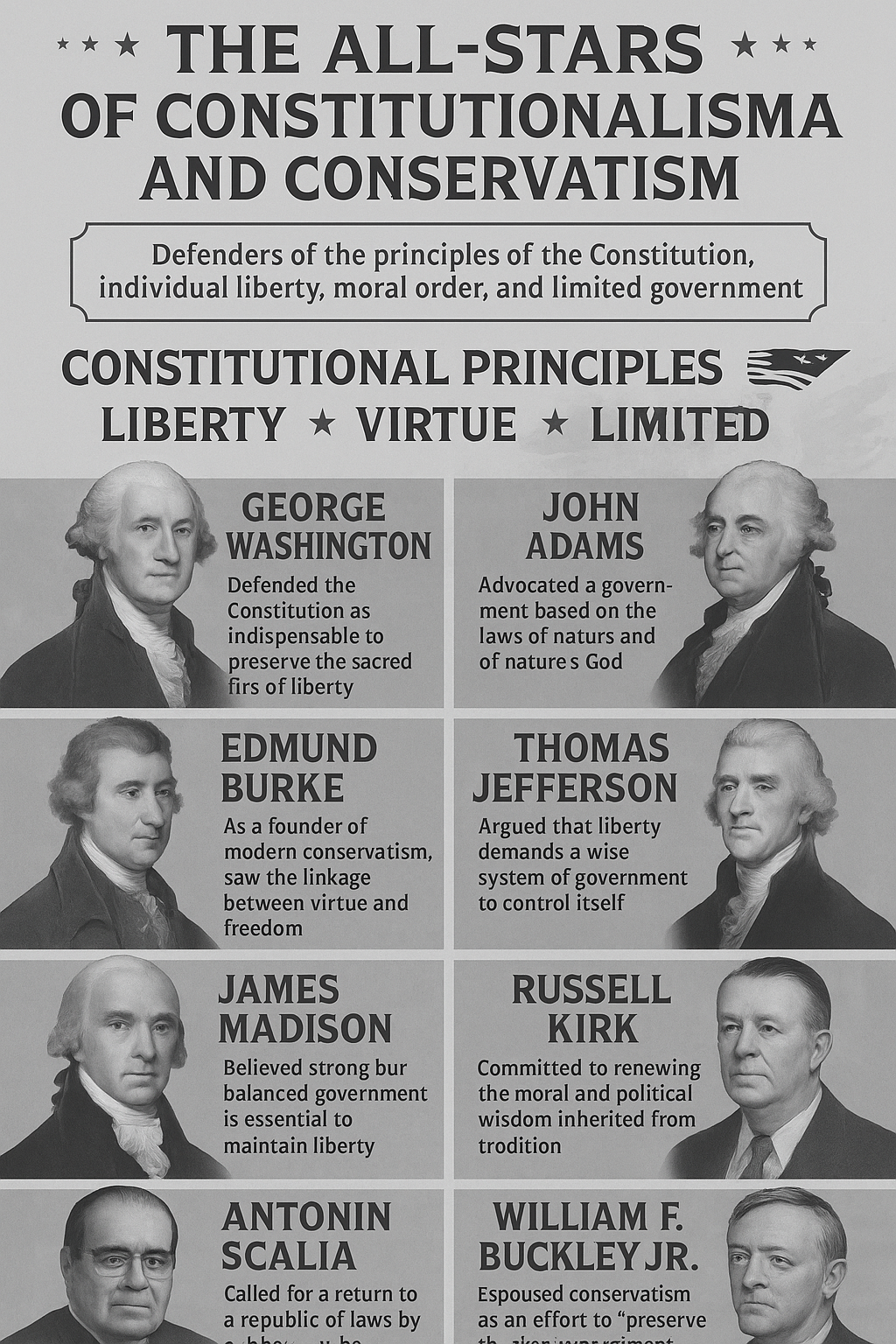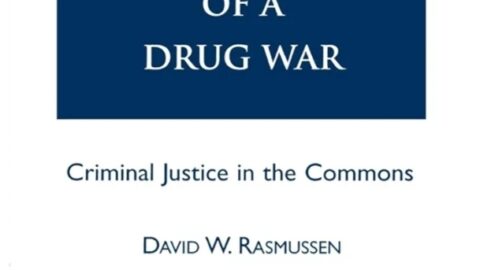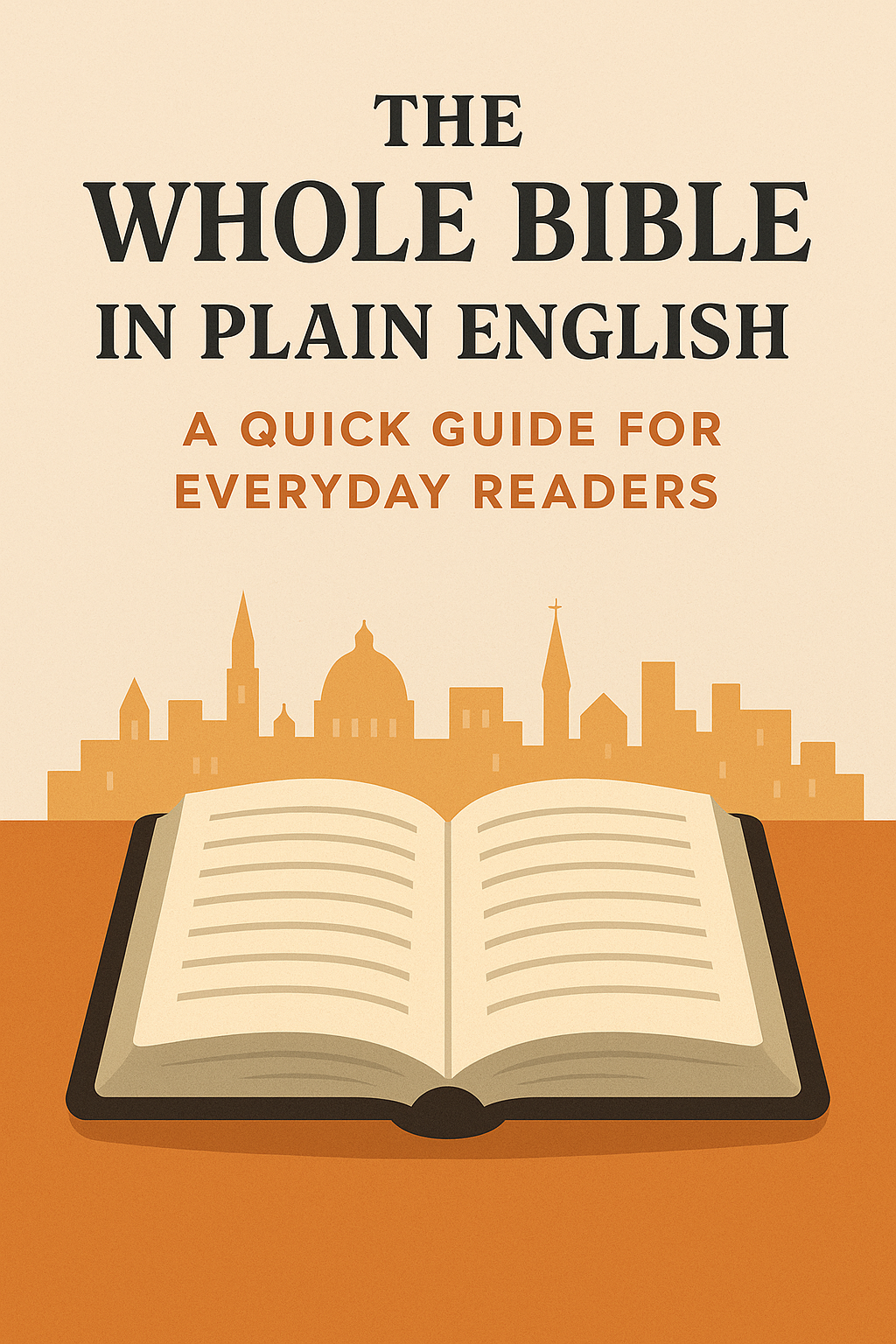Throughout history, certain figures have stood tall as defenders of liberty, natural rights, limited government, and the Constitution — the foundational ideas that protect individual sovereignty against centralized power. These “All-Stars” consistently fought for the timeless principles that built free societies, even when doing so made them unpopular, misunderstood, or maligned.
While each thinker, leader, or activist had his own nuance, they shared a common conviction: that human beings are born free, that governments must be strictly limited, and that virtue and personal responsibility are indispensable to a thriving republic.
Here are some of the towering figures of Constitutionalism and Conservatism — along with why Ron Paul deserves his rightful place among them.
1. George Washington
Legacy: The indispensable man of the American Revolution and the first U.S. President, Washington set the standard for civic virtue, voluntary relinquishment of power, and republican leadership. He modeled constitutional restraint and warned passionately against entangling foreign alliances and political factionalism.
2. Thomas Jefferson
Legacy: Author of the Declaration of Independence, Jefferson emphasized natural rights, local governance, education for a free people, and vigilant resistance to tyranny. He championed the idea that the government derives its powers from the consent of the governed — not vice versa.
3. James Madison
Legacy: Known as the “Father of the Constitution,” Madison architected the separation of powers, checks and balances, and the Bill of Rights to safeguard individual liberties against an expansive federal government.
4. John Adams
Legacy: Adams fiercely advocated for the rule of law, property rights, and an informed, moral citizenry as the foundation of self-government. He warned that liberty cannot survive if virtue is abandoned.
5. Edmund Burke
Legacy: The father of modern conservatism, Burke recognized that traditions, religion, and community norms are the slow-built defenses against the excesses of mob rule and radicalism. He argued that real liberty grows from order, moral responsibility, and gradual reform — not revolution.
6. Calvin Coolidge
Legacy: As President during the “Roaring Twenties,” Coolidge revered constitutional governance, fiscal discipline, and the morality underpinning economic prosperity. He believed that rights come from God, not government, and that it was government’s duty to safeguard — not invent — liberties.
7. Barry Goldwater
Legacy: His 1964 presidential campaign reignited conservative constitutionalism after decades of progressivism. His book The Conscience of a Conservative called for a return to individual rights, states’ rights, free markets, and a strong national defense — inspiring the modern conservative movement.
8. William F. Buckley, Jr.
Legacy: Through National Review and his intellectual leadership, Buckley revitalized American conservatism, bringing together anti-communism, free-market economics, and traditional values into a coherent and articulate force.
9. Russell Kirk
Legacy: In The Conservative Mind, Kirk articulated that true conservatism means upholding “the permanent things” — a reverence for tradition, morality, community, order, and prudent change. His work remains a foundational text for understanding the soul of conservatism.
10. Ronald Reagan
Legacy: Reagan restored the language of the Founding Fathers to the American people: liberty, self-reliance, limited government, and national pride. He believed America was “the last best hope of earth” and worked to shrink government, slash taxes, and defeat Soviet communism.
11. Ron Paul
Ron Paul deserves a place among the All-Stars of Constitutionalism and Conservatism because he never wavered from first principles, even when it cost him politically.
Ron Paul consistently stood for individual liberty, sound money (gold standard advocacy), non-interventionist foreign policy, and strict constitutional adherence. He warned against the dangers of central banking, endless wars, and federal overreach decades before they became popular topics. Through his presidential campaigns and decades-long congressional service, Ron Paul reintroduced millions of Americans to ideas about limited government, Austrian economics, decentralization, and the moral case for freedom.
Ron Paul wasn’t just “conservative” — he embodied the radical, liberty-first spirit of the American Founders.
Why These Figures Matter Today
In a world where government power expands unchecked, personal responsibility diminishes, and the Constitution is often treated like a relic, these All-Stars remind us of:
- The fragility of liberty
- The dangers of centralized control
- The necessity of virtue and moral self-restraint
- The foundational importance of limited government and individual rights
Their ideas are not mere historical curiosities — they are living standards, as relevant today as ever.
In sum:
- Without virtue, liberty collapses.
- Without constitutional limits, tyranny rises.
- Without individual responsibility, freedom withers.
- Without champions like these, the cause of human dignity falters.






